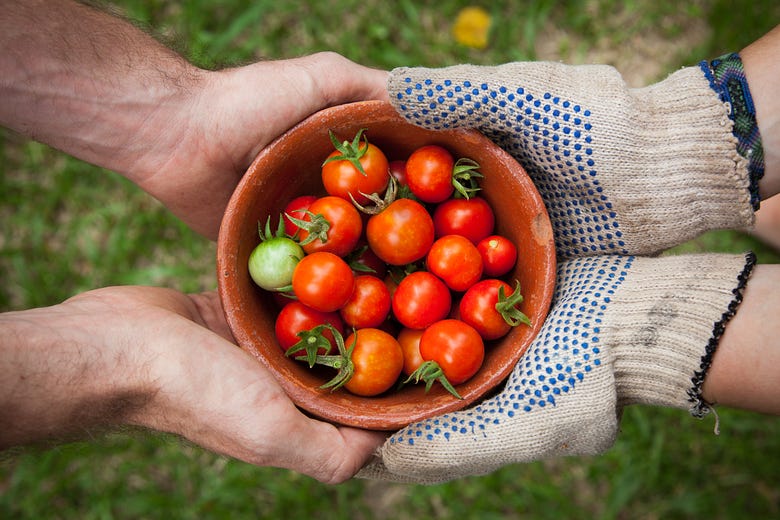“Since you get more joy out of giving joy to others, you should put a good deal of thought into the happiness that you are able to give.” — Eleanor Roosevelt
Do you consider yourself happy? Sad? Depressed? Maybe you feel one of these emotions from time to time. Or maybe you’re stuck in an extended rut and are looking to find a way out of it.
There are many fluctuations in our state of mind that we can all be in. But fortunately, there is a lot of effort being focused on the psychology of happiness — and how to implement it in your own life.
Take Dr. Laurie Santos, for instance.
If you haven’t heard of her, in the past couple of years, her courses have become some of the most popular ever in the US.
So popular, in fact, her first course on happiness ended up having 1,200 students enrolled — 25% of the entire Yale undergrad population.
And it’s for good reason, people (and especially students) are seemingly feeling stressed, anxious, and depressed more than ever.
But courses taught by professionals such as Dr. Santos can give us a huge leap forward in trying to feel better every day.
The link between giving and happiness
One of the courses she teaches is on the act of giving. A study she often quotes reports how people who donate to causes — especially ones close to their hearts — can experience a “warm glow” effect.
The meta-study uses the term “prosocial spending” as the main underlying factor. It defines the connection between human beings — those personal to you — as being an important part of receiving an increase in happiness after helping someone.
This was mainly referring to giving to charities — not only to help others — but to feel good while doing it.
But of course, there are many other ways of helping and giving that have been proven to benefit everyone.
The various acts of kindness
I once loaned a friend who was in rough shape a chunk of money. I meant it as a gift, but I knew he would have a tough time paying it back.
So I just said it was a loan to be repaid when he was doing better in life.
After he got his feet back underneath him, I refused any money and then told him it was a gift. I earned more than enough at the time, so why not?
And I was more than happy to help out friends in similar fashion who weren’t as lucky as me with employment back then.
It turns out, I may have been actually happier by doing that.
This study points out two main common factors in gaining a warm glow when performing acts of kindness.
- People feel happier when giving to charities if they have a person connected to the cause
- People feel happier when doing good deeds in social settings
When we give money, perform acts of kindness, and generally go out of our way to assist a friend or acquaintance in need — there is a backward effect.
The warm glow.
Giving’s effect on health
Dr. Stephen Post is a professor of preventative medicine at Stony Brook University. He’s extensively studied the benefits of giving as an effect on people’s health.
He even wrote a book called Why Good Things Happen to Good People exploring the subject in depth.
One of his main findings after decades of study has been what he calls the “helper’s high.”
This is defined as “a pleasurable and euphoric emotional sensation of energy and warmth.”
The effect was first noticed in a 1988 study by Allen Luks where they surveyed thousands of volunteers in the US.
The survey reported that:
“about half report that they experienced a “high” feeling, 43 percent felt stronger and more energetic, 28 percent felt warm, 22 percent felt calmer and less depressed, 21 percent experienced greater feelings of self-worth, and 13 percent experienced fewer aches and pains.”
Many of these respondents started reporting the “helper’s high” often after beginning volunteering at charities and other organizations.
It seems the act of giving can give even more benefits than just good feelings — its social connections can make you healthier too!
Kindness versus reciprocation
The act of being nice for a benefit in return might sound a bit greedy to some people. Doing something nice only in the expectation of a reward is greedy in some sense.
But that doesn’t stop the meaning behind it.
As children, we’re taught to do nice things not for the sake of reward, but for being a good person.
Some people even experience a sense of guilt if they think something is being reciprocated.
Does getting a tax receipt when you donate to your favorite charity stop you from giving? After all, you have the option not to take the receipt.
But come tax time you might wonder why you did that.
Was it only to make yourself feel less guilty? If I feel guilty after doing something, I’m much less likely to do it again in the future.
And since giving is a good thing, why not accept the incentive?
Helping individuals who are in need is a good thing to do, regardless of the motivation.
Because it’s a good thing for them.
And if it makes us feel happier at the same time, then even more people can benefit from simple acts of kindness.
Even in a world where everyone is incentivized to do nice things more often, it’d probably end up being a much happier world overall — don’t you think?
Whether or not you want to feel happier from giving, I hope you consider that it is a potential benefit for you — and more importantly, for other people.
So go out there and try to give more, do more, and help more.
Who knows, you may end up being a much happier person overall after.
Want more fun stories? Join Pryor Thoughts for free today!




